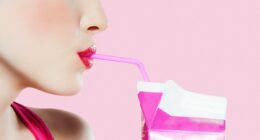Disorders Cure
oi-Amritha K
on March 29, 2022
Sleeping beauty syndrome (SBS), or Kleine-Levin syndrome (KLS), is a rare disorder characterized by hypersomnia and hyperphagia and cognitive impairments and hypersexual behaviour. It is predominantly reported in adolescent males. However, females have a longer disease course than males.
What Is Sleeping Beauty Syndrome?
People with KLS may sleep up to 20 hours a day. KLS may also cause changes in behaviour and confusion. For this reason, it is often referred to as ‘sleeping beauty syndrome.’
Almost 70 per cent of people suffering from this disorder are male. Still, teenage boys are more likely to develop this disorder than any other group. The KLS episodes can come and go over an extended period, and sometimes they last for as long as ten years. A person can have difficulty attending school, working, or partaking in other activities during each episode [1].
Symptoms of KLS can appear and disappear over many years. Still, your symptoms can disappear one day and never return. When someone with KLS does not have an episode for six or more months, they are usually considered to be cured.
Symptoms Of Sleeping Beauty Syndrome
Those living with KLS may not experience symptoms every day. Most of the time, affected individuals do not experience symptoms between attacks. Instead, symptoms can appear for a few days, weeks, or even months.
Sleeping up to 20 hours a day is not uncommon during an episode.
Other symptoms can be triggered by episodes, such as the following [2]:
- Extreme sleepiness
- Fatigue
- Disorientation
- Hallucinations
- Excessive sex drive
- Irritability
- Childish behaviour
- Increased appetite
- Reduced blood flow to parts of the brain during an episode
The symptoms of KLS can recur suddenly and without warning, weeks, months, or even years later. In most cases, people can resume normal activity after a psychotic episode. However, they may have little memory of what happened [3].
Causes Of Sleeping Beauty Syndrome
It is unknown exactly what causes KLS, but some doctors believe certain factors can increase your risk [4].
Injuries: The cause of sleeping beauty syndrome may be an injury to the hypothalamus, the part of the brain that regulates sleep, appetite, and body temperature. It’s possible to injure your head if you fall and hit your head, but more research is needed to confirm this.
Infections: KLS can develop after an infection like the flu. This has led some researchers to believe that KLS is an autoimmune disorder. An autoimmune disease occurs when the immune system attacks healthy tissue in the body.
Genetics: KLS may also be genetic in some cases. In some cases, the disorder affects more than one family member.
READ RELATED: Hybrid COVID Variant Reported In India: Know The Symptoms Here
Diagnosis Of Sleeping Beauty Disorder: How To Know If You Have KLS
Diagnosis of KLS can be challenging [5]. Due to its psychiatric symptoms, some people are misdiagnosed with it. As a result, it can take, on average, four years for someone to receive an accurate diagnosis.
It is an exclusion diagnosis, meaning there isn’t a single test that will confirm the diagnosis. Instead, several tests may be conducted to rule out other possible illnesses.
KLS symptoms can be similar to those of other health conditions. Therefore, you may undergo a physical examination and diagnostic tests, including blood tests, sleep studies, and imaging tests such as a CT scan or MRI of your head.
The following conditions are checked for and ruled out by these tests [6]:
- Diabetes
- Hypothyroidism
- Neurological conditions, such as multiple sclerosis
- Tumours
- Inflammation
- Infections
- Other sleep disorders
Your doctor may suggest a mental health evaluation if you are experiencing excessive sleepiness. This helps your doctor determine whether your symptoms are caused by severe depression or another mood disorder.
Management Of Sleeping Beauty Syndrome
Several medications are available to help you manage symptoms of sleeping beauty syndrome, which may help reduce the duration of an episode and prevent future episodes.
Stimulant pills are an option for treating KLS. They can cause irritability, but help promote wakefulness and reduce sleepiness [7].
Medications that treat mood disorders may also be beneficial in managing the symptoms of sleeping beauty disorder. In addition, medicines commonly used to treat bipolar disorder may help relieve symptoms of KLS.
On A Final Note…
Depending on the severity of your symptoms, the condition (KLS) can vary in people. Symptoms generally decrease with each passing year, causing episodes to become milder and less frequent. Find out how to recognize an upcoming episode from your doctor. KLS can lead to sudden fatigue and sleepiness. In the event of an episode, while driving or operating machinery, you could cause injury to yourself or others. Knowing how to spot an impending episode can help you avoid potentially dangerous situations.
GET THE BEST BOLDSKY STORIES!
Allow Notifications
You have already subscribed
Story first published: Tuesday, March 29, 2022, 13:04 [IST]
Source:











